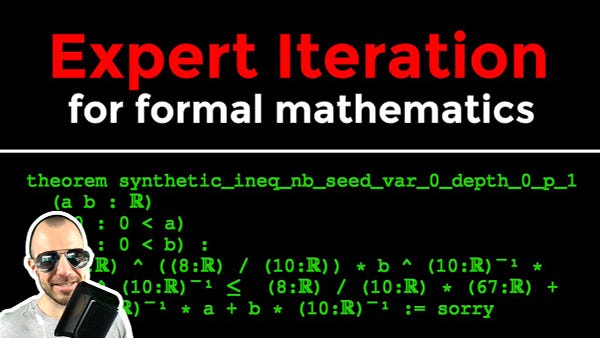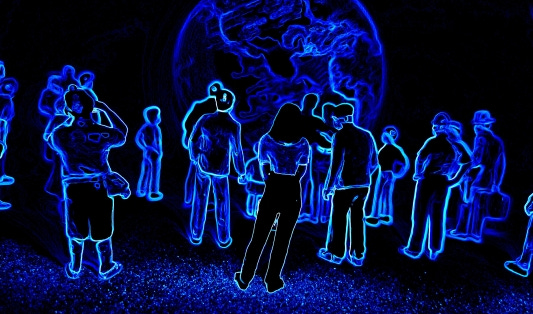For years it has been a running joke with some of my close friends that I have been perpetually writing a book about the intersection of technology and modernity. To that end my consideration of how we build and what it means for our shared social fabric in terms of civility and technology has been a major part of my creative efforts over the years. Modernity as a word is an attempt to signal that the now or more to the point something very current is being considered. Singularity is a word that has been used in a variety of ways. When you are describing a phenomenon in space the word singularity could be used to describe the formation of a black hole event. Some type of force would compel matter to keep compressing into a single spot until the density of that formation becomes a singularity. In this case the word singularity is being applied to a technological based scenario where in a similar fashion the advance of technology continues to the point where the advance itself cannot be stopped anymore. Within that metaphor technology would have advanced to a point where no matter what action was taken the advance of technology would continue in an uncontrolled way.
A lot of science fiction authors have dealt with the rise and fall of the singularity. You could easily hide under a pile of them and read for years. It is a very interesting subject to take on as it allows for a myriad of very advanced problems to deal with and typically creates all sorts of drama. My title for this particular essay deals with the possibility of touching the singularity. To that end I’m describing a point of time before the intersection of technology and modernity. You can argue with the advance of large language models or foundation models, potentially the advance of technology is starting to become a snowball that will roll down the mountain either slowly or very quickly toward the singularity. I went back to look at the paper published by a ton of researchers at Stanford University, “On the Opportunities and Risks Foundation Models,” only to find that the words “singularity” and “modernity” do not occur [1]. All four of the references to “awareness” were about public understanding and not related to the state of an AI’s understanding of the world. The idea of an artificial consciousness is typically adjacent to arguments related to the formation of a technological singularity.
This problem is a complex one to begin to dig into and it took me about 500 words split between two paragraphs to start to set up the groundwork necessary to begin to question the intersection of technology and modernity. A simpler way to get to this point probably exists, but it will take some more practice on my part to introduce in the future. At this point, I’m very curious and you may be as well about just how close we are to touching the singularity. I looked at a very well referenced paper, “Future Progress in Artificial Intelligence: A Survey of Expert Opinion,” published in 2016 by Vincent C. Müller and Nick Bostrom [2]. That analysis of expert opinions found that there is a 50/50 chance between 2040 and 2050 that a general artificial intelligence or AGI would spring into existence or be created. Arguments can be made and are being made about if the singularity is inherently good or bad for civil society and civility in general. That is not a consideration I’m working with at the moment. My consideration of this is as an event or more to the point right before the event occurs. I did go back and read an article from a 2015 issue of the New Yorker magazine online called, “The Doomsday Invention: Will artificial intelligence bring us utopia or destruction?” [3]. That article is principally about Nick Bostrom and does consider utopia and destruction if you want to go give that a read.
We probably do not have the robotic automation available for an AGI to manifest as both being capable of awareness and constructing things. We are building highly complex 3D printing and other automation methods, but the supply chain for that is pretty complex at the moment. We would probably be able to see the rise of that type of technology before a more gradual intersection of technology and modernity occurred. It would have to get pretty far along to be a true singularity in the sense that it would be something that could continue on as an unstoppable force. Right at that point of moving toward the singularity is where my thoughts refocus on the social impacts to civility, our social fabric, and the normative patterns that make up our shared perspective. As I continue to dig into that point of time and really try to think about the branching of outcomes I do think it will eventually turn into a lengthy manuscript or a full book. Over the last twenty years or so I have not been ready to complete that writing effort. I have written extensively about normative patterns, civil society, and how technology relates to those concepts. I have always just fallen short of really trying to map out the intersection of technology and modernity.
At this point in the journey week 62 is now wrapped up and I’m going to start to produce the audio version of the above text. This week’s narration will include some coverage of the links and thoughts being shared. I have to remember to create an outro style ending for these recordings. The first ones abruptly ended without any sign posting to the listener that the end had occurred. A quick look at the actual post would have been enough for somebody to realize that those podcasts just stopped at the end of the main section prose. That is probably not the best method of gracefully handling the conclusion of a podcast so I have adapted.
Links and thoughts:
1. This week on The Vergecast Nilay and friends talked about technology. The episode titled, “Steam Deck review / Samsung Galaxy S22 Ultra review,” was pretty decent. It included some discussion of technology embargos, mega gadgets, and the future of technical things.
2. On the Lex Fridman podcast episode number 267 the guest was Mark Zuckerberg. Generally speaking it is interesting to hear a long form interview with Mark Zuckerberg. I enjoyed a couple of them that were hosted by Casey Newton on Platformer.
or you can watch it here:
You can find that podcast interview with Casey Newton and Mark Zuckerberg here:
https://megaphone.link/VMP6088507415
3. During the course of walking around Target this week I pushed play on this podcast and had no idea the topic would pull me into totally focusing on what the writers had to say. Go check out, “The Sunday Read: 'The Battle for the World’s Most Powerful Cyberweapon,'” podcast episode of The Daily and you won’t be disappointed if you enjoy thrillers, spycraft, and cyber security.
4. Nilay talked to the CEO of Sonos about some recent lawsuits. This is an example of the excellent reporting that Nilay had done with the Decoder and Vergecast publications. This is an example of how long format conversation is superior to sound bytes. To that end, most reporters could learn from curiosity based questioning and build up of conversations that occur in this type of forum.
5. Over the last decade I have listened to more hours of Josh Topolosky, Nilay Patel, Paul Miller, and Dieter Bohn on podcasts than I care to admit. From Endgadet, This is my next, The Vergecast, and Tomorrow I have tuned in on a weekly basis to hear about technology. This week one of the best technology reviewers in the game Dieter Bohn has elected to leave journalism and take a job related to product strategy at Google. People move from politics into journalism and from journalism into politics. I know people move from technology journalism into the business community, but this is a pretty high profile move. Legitimate and independent product testing and the communication about industry trends is a segment of journalism that has both flourished online and diminished within the traditional journalism landscape. That is probably due to a number of facts we cannot blame on Dieter. This little aside is my heartfelt goodbye to an interesting voice in a landscape of technology that will no longer be a part of my weekly listening routine.
Top 5 Tweets of the week:










Footnotes:
[1] https://arxiv.org/pdf/2108.07258.pdf
[2] https://philpapers.org/rec/MLLFPI
What’s next for The Lindahl Letter?
Week 63: Sentiment and consensus analysis
Week 64: Language models revisited
Week 65: Ethics in machine learning
Week 66: Does a digital divide in machine learning exist?
Week 67: Who still does ML tooling by hand?
I’ll try to keep the what’s next list for The Lindahl Letter forward looking with at least five weeks of posts in planning or review. If you enjoyed this content, then please take a moment and share it with a friend. Thank you and enjoy the week ahead.













Touching the singularity